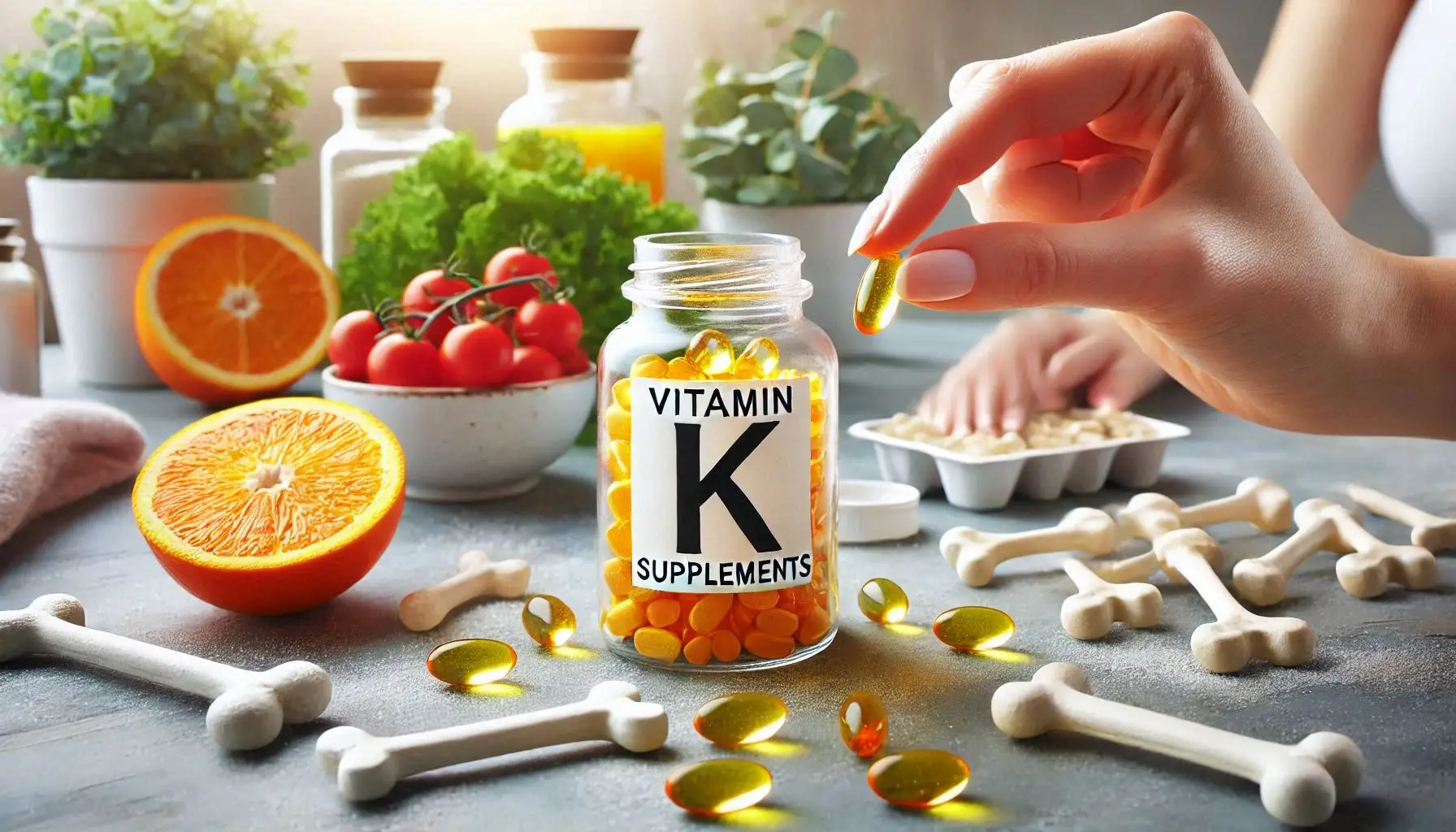Menopause is a significant transition in a woman’s life, marked by various physical and emotional changes. One of the most pressing concerns during this period is bone health. As estrogen levels decline, women become more susceptible to bone loss, leading to conditions like osteoporosis. Recent research suggests that vitamin K supplements might play a crucial role in maintaining bone strength during menopause. In this blog, we’ll explore the relationship between vitamin K, menopause, and bone health, and how you can incorporate this essential nutrient into your diet.
Understanding Bone Health and Menopause
During menopause, the decrease in estrogen production affects bone remodeling—the process through which bone is continuously renewed. Estrogen is vital for maintaining bone density, and its decline can lead to increased bone resorption (the process of breaking down bone) and decreased bone formation. As a result, many women experience a significant loss of bone density during this time, which can increase the risk of fractures and osteoporosis.
The Role of Vitamin K in Bone Health
Vitamin K is a fat-soluble vitamin that plays a crucial role in various bodily functions, particularly in blood clotting and bone metabolism. There are two primary forms of vitamin K: K1 (phylloquinone) and K2 (menaquinone). While K1 is primarily found in leafy green vegetables, K2 is found in fermented foods and certain animal products.
How Vitamin K Supports Bone Strength
- Activation of Osteocalcin: Vitamin K is essential for the synthesis of osteocalcin, a protein that binds calcium to the bone matrix. This process helps maintain bone density and strength. Without adequate vitamin K, osteocalcin remains inactive, reducing its ability to stabilize calcium in bones.
- Calcium Regulation: Vitamin K helps regulate calcium levels in the body. It encourages calcium deposition in bones while preventing it from being deposited in soft tissues, such as arteries. This dual action is vital for maintaining overall bone and cardiovascular health.
- Collagen Formation: Vitamin K may also play a role in the formation of collagen, an essential component of bone structure. Healthy collagen levels contribute to the overall integrity and strength of bones.
The Benefits of Vitamin K Supplements
1. Enhancing Bone Density
Research indicates that vitamin K supplementation may help improve bone mineral density in postmenopausal women. Studies have shown that women who took vitamin K2 supplements experienced less bone loss compared to those who did not. This suggests that vitamin K could be a valuable ally in preventing osteoporosis during menopause.
2. Supporting Overall Bone Health
Vitamin K not only helps maintain bone density but also supports overall bone health. By promoting the mineralization of bones and preventing calcium loss, vitamin K supplements can contribute to stronger, healthier bones.
3. Cardiovascular Benefits
Interestingly, vitamin K is also associated with cardiovascular health. By ensuring proper calcium regulation, it can help reduce the risk of arterial calcification, which is particularly beneficial as women age.
How to Incorporate Vitamin K Into Your Diet
While supplementation is an option, it’s essential to focus on dietary sources of vitamin K as well. Here are some ways to increase your vitamin K intake:
Foods Rich in Vitamin K1
- Leafy Greens: Spinach, kale, collard greens, and Swiss chard are excellent sources of vitamin K1.
- Cruciferous Vegetables: Broccoli and Brussels sprouts are also rich in this vital nutrient.
- Herbs: Fresh parsley and basil can boost your vitamin K intake significantly.
Foods Rich in Vitamin K2
- Fermented Foods: Natto (fermented soybeans) is one of the richest sources of vitamin K2. Other options include sauerkraut and kimchi.
- Animal Products: Egg yolks, cheese, and certain meats (like liver) contain K2.
Supplementation
If you find it challenging to get enough vitamin K from your diet, consider discussing supplementation with your healthcare provider. They can recommend appropriate dosages and types of vitamin K based on your individual health needs.
Potential Risks and Considerations
While vitamin K is generally safe, there are some considerations:
- Blood Thinners: If you are on anticoagulant medications (such as warfarin), consult your doctor before taking vitamin K supplements, as they can interfere with these medications.
- Individual Needs: As with any supplement, individual needs can vary. It’s essential to assess your dietary intake and consult with a healthcare professional to determine if supplementation is necessary.
Conclusion
As menopause brings about changes that can impact bone health, vitamin K supplements may offer a promising solution for maintaining bone strength. By supporting the activation of osteocalcin and promoting calcium regulation, vitamin K can play a crucial role in preventing osteoporosis and enhancing overall bone health. Whether through dietary sources or supplements, ensuring adequate vitamin K intake during menopause could be a vital step in safeguarding your bone health for years to come. Always consult with your healthcare provider before making any significant changes to your diet or supplement regimen to ensure it aligns with your health goals.
